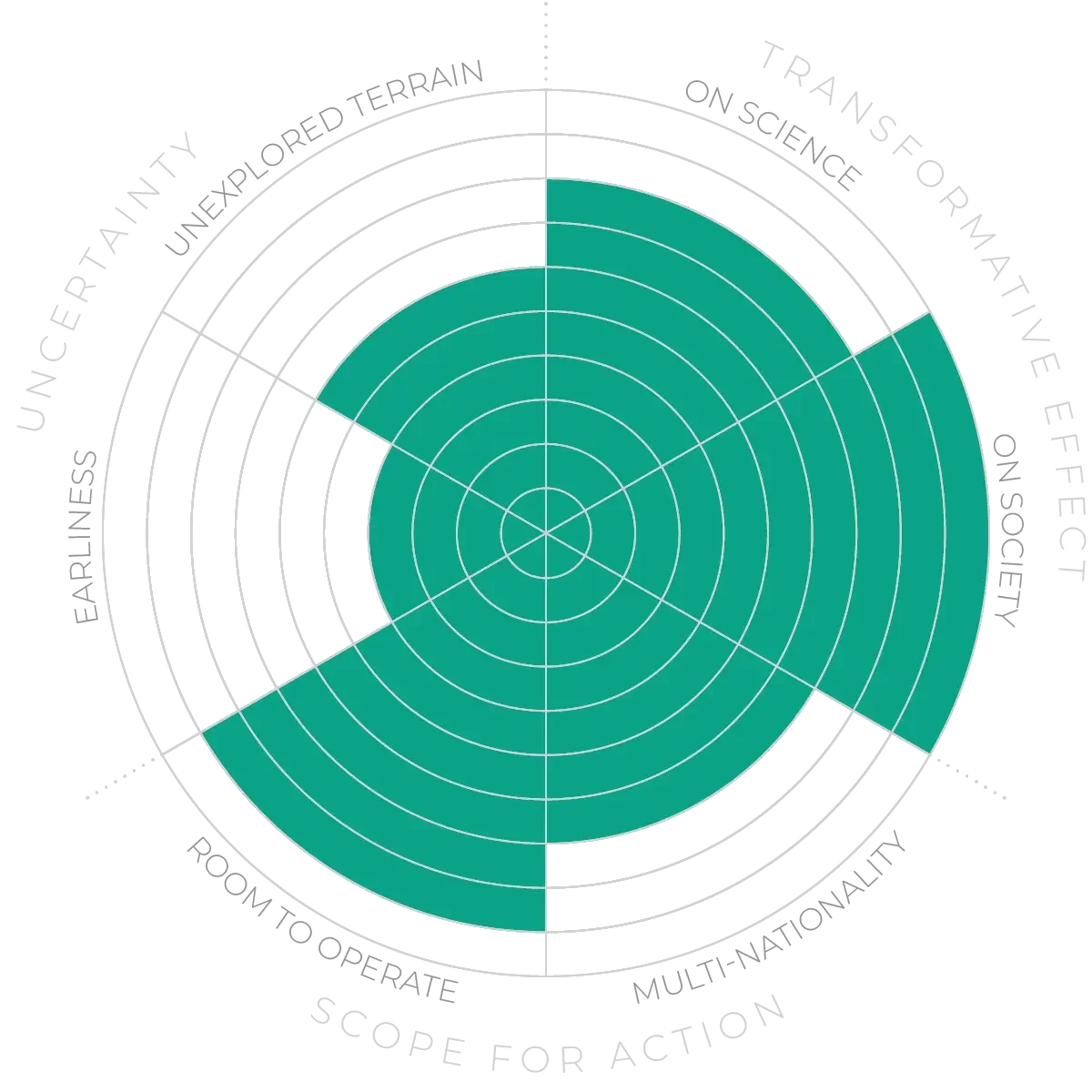Future Horizons:
10-yearhorizon
A sustainable “blue” economy emerges
25-yearhorizon
AI and systematic analysis improve conservation
48 Climate change is deoxygenating, acidifying and warming the oceans, pollution such as fertiliser run-off from farms threatens many ecosystems, and overfishing is also destabilising many. There are emerging impacts, too, such as the nascent deep-sea mining industry49 and initiatives to remove carbon dioxide to the ocean to mitigate climate change. These impacts intersect in numerous ways:50,51 for instance, ocean biodiversity affecting climate.52 However, with effective knowledge-gathering and policy-making, it should be possible to minimise harms and create a sustainable future for the oceans.53 AI may have roles to play here, for instance in modelling the impacts of interventions.54
Better understanding of our impacts will come from improvements in monitoring, for instance by robotic surface vehicles,55 and in expanding our observations to the remote deeps.56 There is great potential for citizen scientists to contribute57 both to ocean observations and to conservation.58 New “blue” industries like marine aquaculture may have key roles both in our economies and in marine conservation.59 Capacity-building and knowledge transfer will be crucial to understanding all parts of the ocean from the south to north and shallow to deep.
Managing the oceans is a major geopolitical challenge.60 A key issue is to determine, by leveraging scientific expertise and co-design, which kinds of policy interventions will be the most beneficial and have the fewest unintended consequences. The UN BBNJ (biodiversity of areas beyond national jurisdiction) treaty,61 once ratified, will regulate the sustainable use of marine genetic resources, environmental-impact assessments and area‑based management tools such as marine protected areas in the ocean outside national boundaries.62 Successes in ocean diplomacy, such as with the adoption of the BBNJ treaty, will need to be built upon to assist future ocean-science and conservation efforts.63 Conservationists are increasingly exploring radical ideas such as granting legal rights to nature.64
Human impact and ocean stewardship - Anticipation Scores



